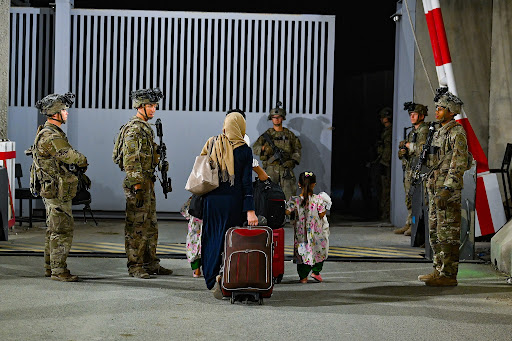
The goal of these posts is to encourage you that with a little attention to cultural detail, you may forge a loving friendship with people who need new friends. We will all make mistakes and accidentally break etiquette, but when Christ is the motive behind our actions, His love will overcome any missteps.
This is the first in a series of posts by our volunteer Thomas Cameron who was stationed by the United States Armed Forces in Afghanistan.
“The tips outlined below are from my perspective serving in eastern and southern Afghanistan in 2012 and 2014 respectively. Most Afghans I encountered belonged to the Pashtun tribe and they spoke Pashto. They were likely adherents of Sunni Islam.
Although the Western world uses the term “Afghan” to describe people from Afghanistan, the actual people from Afghanistan often don’t see themselves as an “Afghan”. Most Afghans tend to have a deeper connection and identity to their elders, clans, tribes, village, mountain range, valley, etc. The tips below may not entirely relate to the specific Afghans you will encounter. However, the goal is that these tips will be good overall principles to guide you in your initial interactions.
Our prayer is that the Light of Christ shines through all initial interactions, forging of friendships, and any cross-cultural misunderstandings that will transpire.”
Don’t show an Afghan the bottom of your shoes.
- This will be taken as a sign of contempt and disrespect.
- As Americans, we often cross our legs when sitting – be mindful to keep your feet on the ground.
Left hand vs. right hand.
- The left hand is considered unclean, particularly because it’s the hand used to wipe after defecating. In places with a historical lack of soap and water, this is the solution for cleanliness.
- Try to use the right hand for the passing of food, gifts, and other items.
Greetings
Putting your right hand over your heart is a major sign that you want to be friends.
- This gesture looks just like when Americans say the Pledge of Allegiance.
- This gesture is important upon arrival as it sets a friendly tone.
- This gesture is important upon departure as it signifies that you want to continue the friendship until the next time you meet.
It is normal to exchange the words of peace.
- As-salamu alaykum is Arabic for “peace be upon you.”
- Malaykum as-salaam is the Arabic response for “and upon you be peace.”
It is a major sign of goodwill for Americans to learn general greetings in the Afghan’s mother tongue. This will go a long way towards forging a relationship.
Afghans speak a variety of different languages as there are several people groups and tribes. Pashto and Dari (very similar to Iranian Persian/Farsi) are the official national and two most common languages. Pashto and Dari have a certain degree of mutual intelligibility. Other languages include but are not limited to Balochi, Nuristani, Pashayi, Tajik, Turkmen, Urdu, and Uzbek. Arabic is not widely spoken in Afghanistan.- After the heart gesture and exchange of words of peace, the right hand should be used to greet Afghans with a handshake.”



